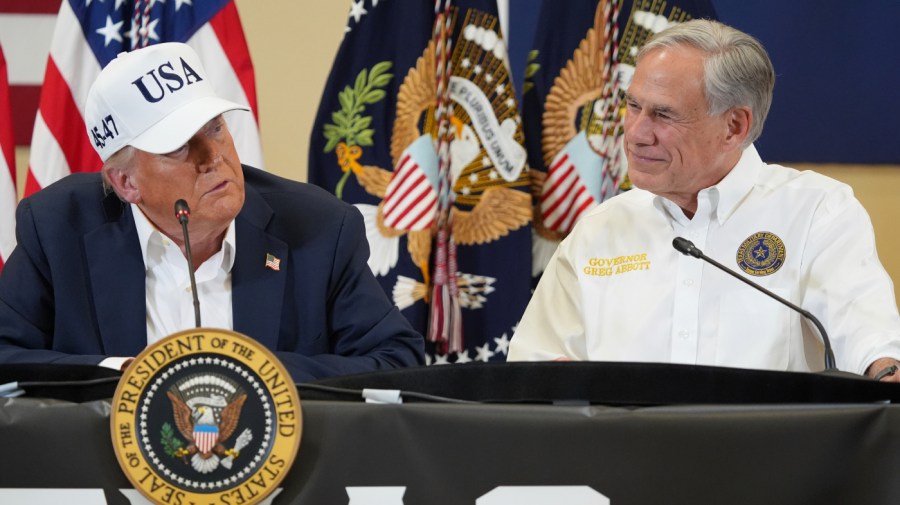Trump administration rhetoric on FEMA moves toward reform rather than termination

Rhetoric from Trump administration officials appears to be shifting more toward reforming the Federal Emergency Management Agency (FEMA), rather than axing it entirely.
While the shift has been more apparent as the administration faces questions about the disaster agency in light of deadly floods in Texas, the subtle changes in how key figures talk about FEMA predates the July 4 tragedy.
Some officials have walked a tightrope, emphasizing that they want to tear down the agency while also rebuilding it, a fuzzy picture for the future of federal disaster policy.
In January, President Trump floated getting rid of the agency.
“I’ll also be signing an executive order to begin the process of fundamentally reforming and overhauling FEMA, or maybe getting rid of FEMA,” he said at the time.
The executive order established a council to put together a report with information including “an evaluation of whether FEMA can serve its functions as a support agency” and “an analysis of the principal arguments in the public debate for and against FEMA reform.”
However, in March, Homeland Security Secretary Kristi Noem, whose department includes the agency, said “we’re going to eliminate FEMA,” without elaborating.
In June, Noem had shifted somewhat, saying that Trump wants “to see FEMA eliminated as it exists today.” At the time, Trump said FEMA would “give out less money.”
While Noem has repeated the “eliminate” refrain in recent days, she and other officials have also emphasized rebuilding FEMA, indicating that they do not plan to entirely dismantle it.
“This entire agency needs to be eliminated as it exists today and remade into a responsive agency,” she said this week.
Meanwhile, White House budget director Russell Vought told reporters Friday while addressing the Texas floods, “We also want FEMA to be reformed.”
“We want FEMA to work well … the president is going to continue to be asking tough questions of all of his agencies,” Vought said.
Tricia McLaughlin, a spokesperson for the Department of Homeland Security, on Friday told The Hill that changes are coming to FEMA.
“It’s not a secret that under Secretary Noem and acting Administrator [David] Richardson, FEMA, as it is today, will no longer exist,” she said.
“Federal Emergency Management will shift from bloated, D.C.-centric dead weight to a lean, deployable disaster force that empowers state actors to provide relief for their citizens. The old processes are being replaced because they failed Americans in real emergencies for decades,” she added. “Under Secretary Noem’s leadership, the FEMA Review Council is developing a comprehensive plan for necessary change.”
White House spokesperson Abigail Jackson told NewsNation the review council “will recommend to the president how FEMA may be reformed in ways that best serve the national interest, including how America responds to and recovers from disasters such that the federal role remains supplemental and appropriate to the scale of disaster.”
While the administration has been sparse on details, what they have said paints a picture of an agency with a diminished role, with more responsibility being placed on the states.
“Emergencies and disasters are always locally executed, the state manages them, and then the federal government comes in and supports that,” Noem said during a roundtable event Friday. “What we are doing here … is empowering the state and the local officials to make the best decisions for their people.”
The Trump administration has also been reticent to approve federal disaster aid in some states.
Even if the administration wanted to get rid of FEMA, the agency has been authorized by Congress and any attempts to fully ax it would likely face legal challenges.
“FEMA has deployed multiple emergency response units and FEMA’s been really headed by some very good people,” Trump said Friday in Texas. “When we got in on January 20, they fixed it up in no time.”
Brett Samuels and NewsNation’s Libbey Dean contributed.